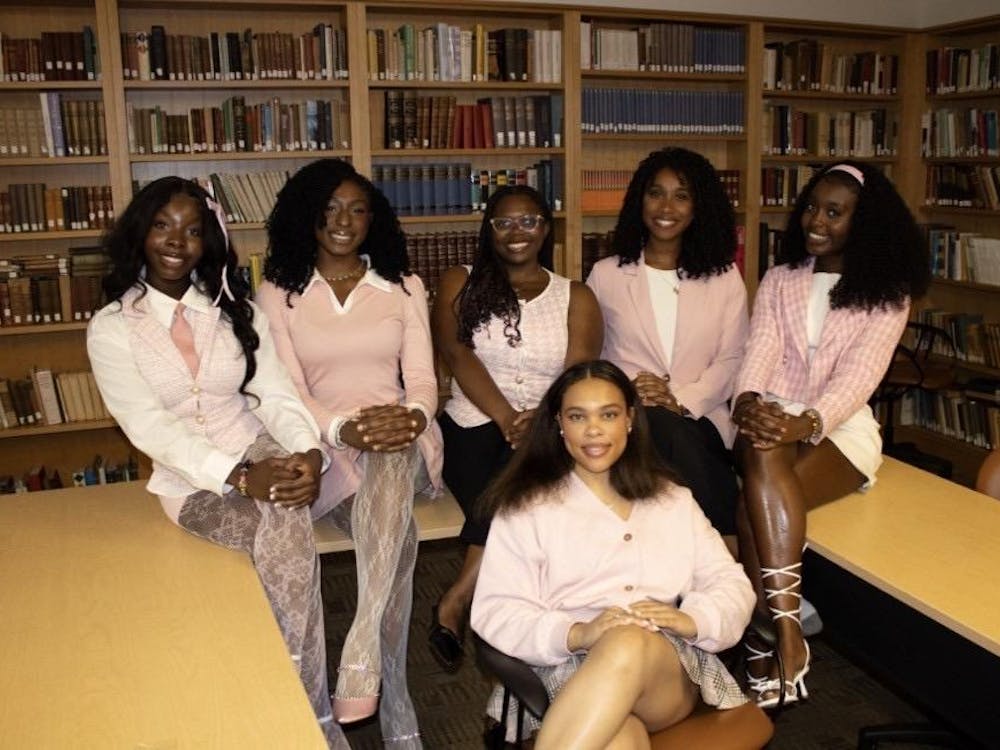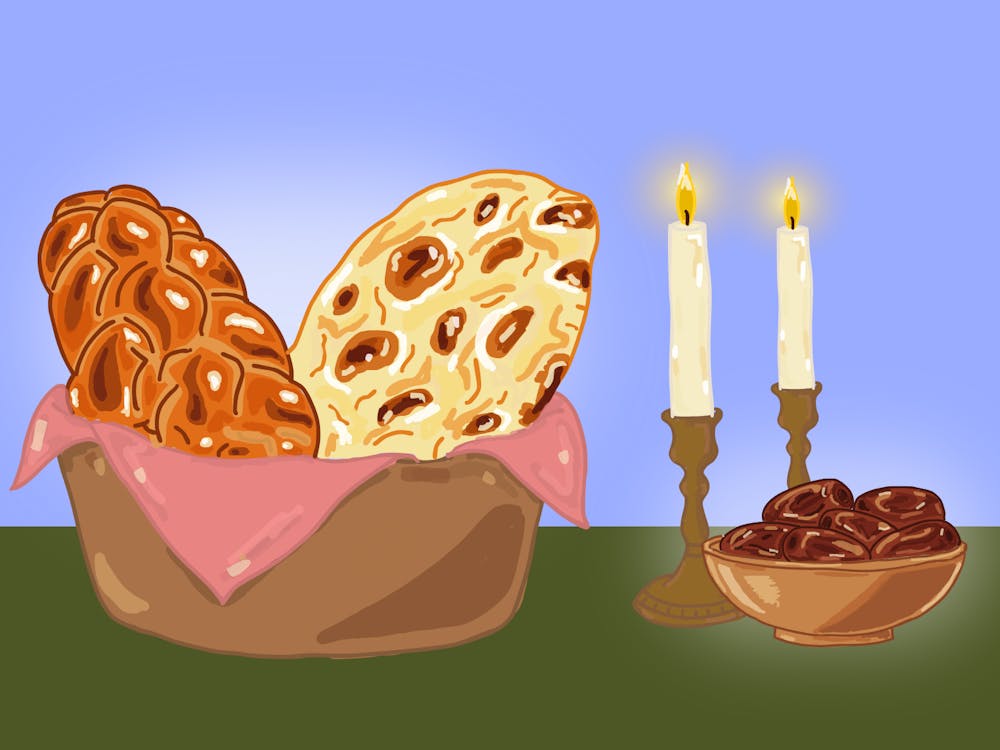Taking the road less traveled - that's what three recent University graduates did. In fact, they followed that road all the way to the far-off locations of Honduras, Romania and Bolivia on two-year programs in the Peace Corps. They have decided to substitute traditional plans of career moves and graduate school for an alternate experience. And for them, that has made all the difference.
Matthew
Matthew Whelan chuckles at the notion that he is "helping" others while volunteering in the Peace Corps.
"I think that we are helped much more than we actually help," he says.
Whelan explains that while some people may perceive the Peace Corps as a mission to help others, he feels it is more accurate to say that he works with a small group of people - about seven men and three women.
"As a volunteer, I just try to be available to people and work with them," Whelan says.
But regardless of what his day brings, one thing is for sure: It starts early.
"I get up early, at like 5," says Whelan, who graduated from the University in 2000. "I light up my fogoon [wood-burning stove], make myself coffee and read a little. I work in my garden or field for a little, but by 6:30 or 7:30, I'm off, usually to work in the fields with the others."
Whelan has been working as a Peace Corps volunteer for about a year in Las Joyas del Carballo, Honduras.
He currently is working as a member of the Family Hillside Project. Its main objectives are to increase the availability and the diversity of food to Honduran families and to teach those families sustainable agricultural practices.
"The project is family because we recognize that agriculture is not just about working with men in fields," Whelan says. "So we work with children in terms of environmental education in the schools and we work with women to improve nutrition and self esteem."
Whelan says the land with which they are working - the hillside - presents numerous problems, most notably erosion. His project tries to teach preventative methods such as soil conservation to local residents.
Whelan says he learns more than he teaches.
"They teach me about agriculture so much more than I teach them," Whelan says.
In addition, his most important lessons are those that pertain to those that have given him insight into another culture.
"When I first arrived at my site, I was eating dinner alone when all of a sudden, the son of the family where I lived walked into the kitchen dragging a 5-foot rattlesnake by the tail," he says. "There was a trail of blood along the floor. He proceeded to look for a knife, then skinned the snake and hung it over the wood-burning stove to dry and eat."
Yet as interesting as it is assimilating into another country, there are some experiences that Whelan would prefer to avoid all together.

CLASS="article--image" BORDER="0"> [ CLICK FOR FULL SIZE ]
As a Peace Corps volunteer, Matthew Whelan spends most of his time teaching soil conservation techniquest to farmers in Honduras.
|
"I am scared every time I ride a bus," Whelan says. "They are old. They go way too fast on bad roads and pass on turns and there are cliffs. So very many things could go wrong, but we have no choice in the matter as volunteers."
One of the hardest parts of Whelan's experience, though, is watching the effects of hunger pervade the Honduran countryside.
"To know that I have so much, that food for me is always assured, while others have nothing, it is an absurdity that runs through our world and my identity like a fault line," Whelan says.
But despite all of the challenges, for Whelan, the rewards are much higher.
"To see work paying off, to see a farming technique that you introduced spreading from farmer to farmer because it works and is useful, to know that some have a more secure supply of food because of my efforts, that is worth all of the effort," Whelan says.
Kara
Kara Rooney never thought she wanted to be a teacher. But the 2001 graduate has found herself teaching in a classroom across the Atlantic Ocean.
"I never wanted to teach in the States, but it's like I have the most motivated class in the world," Rooney says.
Rooney has been volunteering as a teacher in a small town in Romania for about two months. She spends about four to five hours a day teaching English to several different classes of second through eighth graders.
But even though she now lives in another hemisphere, America continues to pervade her classroom.
"My students love America without even knowing about it," Rooney says.
Rooney explains that her students' love of the United States is why they are so eager to learn English and about American culture.
"Today I got a letter in the mail," Rooney says. "The kids were amazed by the photos that had been sent to me. They were like 'ooh is that an American house?'" Rooney says.
Although Rooney says that she loves her students and what she is doing, it's not what she initially expected of the Peace Corps.
"Before I came I was thinking Peace Corps - grass hut," Rooney says. "But sometimes I feel more like an English teacher than a volunteer."
But before she can fulfill her students needs, Rooney must cross other hurdles first.
"It's absolutely impossible to find kids' books here in English," Rooney says.

CLASS="article--image" BORDER="0"> [ CLICK FOR FULL SIZE ]
Matthew Whelan wakes up at 5 a.m. most mornings to read.
|
The only books that Rooney has gotten her hands on are those sent by her parents, but she says that her kids just can't get enough.
"I wrote my library but have not gotten a response," Rooney said. "I am looking for individual people to send them now."
But even without materials, Ronney's efforts are made all the more worthwhile by students' enthusiasm.
"Every other minute a student says I love your class, I love you Ms. Kara, and I love learning about America," Rooney says. "That makes me realize how much they really do need me, and I am so happy to be here. "
Stephen
As a University graduate and Peace Corps trainee, Stephen Shepard's identity in a foreign land is at times misinterpreted.
"When introducing myself here I invariably have to explain that I am neither a Mormon nor a spy," says Shepard, who also graduated from the University last May.
Shepard now is stationed in Chochabamba, Bolivia, where he is training to become a micro-enterprise volunteer. But Shepard explained that he still is just a trainee who lives with a Bolivian family - this leaves him feeling like somewhat of an outsider.
But right now, Shepard's daily life consists of language-training classes in the morning and technical classes on micro-enterprise in the afternoon.
"All this is just a nice respite before I move out to Yotala and have to hack it on my own," Shepard says. "During training, the Peace Corps treats you more or less as a difficult child who must be kept out of trouble."
"I spend too much time with the other gringos [Americans]," Shepard says. "Right now, I am just another tourist, albeit, with more Spanish and less money than most."
When Shepard finishes his training and is sworn in as a volunteer, he will be dispatched to town called Yotola. There his mission will be to develop tourism and to help a group of newly organized artisans - weavers, ironworkers and potters - to design and market their own goods.
Part of his goal also will be to attract tourism to the town, which he says will require market research, advertising and a lot of grassroots organizing.
"One of the first priorities is to convince farmers to stop pasteurizing their pigs in the middle of Town Square," Shepard says.
Still, Shepard's life even as a trainee is not without its fair share of hardship.
"It is difficult to have fun with other gringo friends, or even do things that in the States we would take guiltlessly for granted, like ordering a cappuccino or watching a movie, without feeling the weight of undeserved privilege," Shepard says.
But despite his occasional struggles, Shepard is confident that joining the Peace Corps was the right decision.
"It is a time to reflect on the world, your place in it, and to react to radically different environment," Shepard says. "Meanwhile, you are, if you are lucky, able to help a handful of people"






